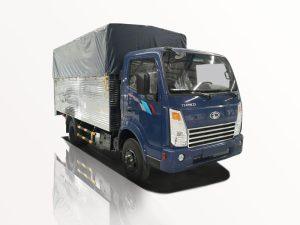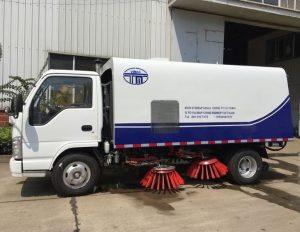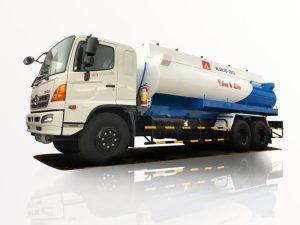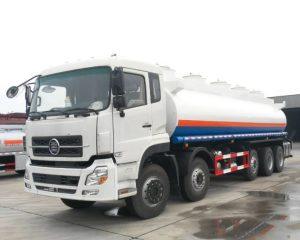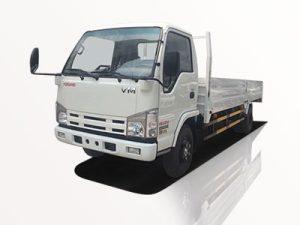Monday to Saturday - 8:00 -17:30
Effective Techniques for Cleaning Concrete Trucks
Introduction
Cleaning concrete trucks is a crucial aspect of maintaining the efficiency and longevity of these vital vehicles in the construction industry. Over time, concrete trucks accumulate residue that can cause wear and tear, compromise performance, and ultimately lead to costly repairs. This article explores comprehensive strategies for cleaning concrete trucks, emphasizing techniques, best practices, and the importance of regular maintenance. By understanding and implementing these methods, fleet operators can ensure their vehicles remain in optimal condition while complying with environmental regulations.
The Importance of Cleaning Concrete Trucks
1. Preventing Build-Up
Concrete trucks, also known as mixer trucks, are designed to transport large quantities of concrete. After each batch, leftover residue can harden, leading to build-up that can obstruct the mixer drum’s operation. Regular cleaning minimizes this risk.
2. Enhancing Performance
A clean truck performs better. Concrete residue can affect the truck’s weight, resulting in unequal loads that can put extra strain on the vehicle. This can lead to increased fuel consumption and, in turn, higher operational costs.
3. Extending Vehicle Lifespan
Regular maintenance, including cleaning, can significantly extend the lifespan of concrete trucks. Reduced wear on components leads to fewer breakdowns and maintenance costs, allowing companies to maximize their investments.
4. Environmental Compliance
Proper cleaning methods ensure adherence to environmental regulations regarding waste disposal. Properly managing waste water and solid waste from concrete trucks minimizes harm to the environment and avoids potential fines.
Essential Tools and Materials for Cleaning Concrete Trucks
1. High-Pressure Washer
A high-pressure washer is one of the most effective tools for cleaning concrete trucks. It can remove hardened concrete and debris quickly, preventing build-up that regular washing cannot address.
2. Cleaning Solutions
Use specialized cleaning agents designed for concrete. These solutions are formulated to break down concrete residues and are eco-friendly, minimizing environmental impact.
3. Scrub Brushes
Heavy-duty scrub brushes aid in loosening stubborn residues. Long-handled brushes can reach hard-to-access areas, ensuring a thorough clean.
4. Brooms and Shovels
These tools are essential for initially removing loose debris and preparing the truck for deep cleaning.
5. Tarp or Containment Mat
A containment mat prevents runoff when washing trucks, allowing for an easy clean-up and disposal of waste water.
6. Personal Protective Equipment (PPE)
Workers should always wear gloves, goggles, and masks to protect themselves from cleaning agents and debris.
Step-by-Step Guide to Cleaning Concrete Trucks
1. Preparation
Before cleaning, prepare the area by moving the truck to a designated cleaning station. Use a tarp or containment mat to manage waste and protect the surrounding environment.
2. Initial Clean-Up
Use a broom or shovel to remove loose debris from the truck. Focus on the area around the drum and at the back of the truck where concrete might accumulate.
3. High-Pressure Washing
Attach the high-pressure washer to a water source. Starting from the top, wash down the entire truck, making sure to focus on areas with visible residue. Adjust the nozzle for varying pressure as needed to avoid damaging the truck surface.
Example of Effective High-Pressure Washing
| Area | Pressure (PSI) | Duration (Minutes) |
|---|---|---|
| Exterior (Body) | 1500-2000 | 5 |
| Drum (Interior) | 2000-3000 | 10 |
| Wheel Wells | 1500-2000 | 3 |
4. Application of Cleaning Solution
Apply the chosen cleaning solution to all areas that have remaining residue. Allow the solution to sit for 5-10 minutes as it breaks down the concrete.
5. Scrubbing
After the solution has set, use heavy-duty scrub brushes to scrub tough spots, particularly inside the drum. Ensure thorough cleaning to reduce the risk of future build-up.
6. Rinse Thoroughly
Using the high-pressure washer, thoroughly rinse off all cleaning solutions from the truck. Make sure no residue is left behind, as it can attract more debris.
7. Final Drying and Inspection
Allow the truck to air dry completely. Once dry, conduct a final inspection to check for any spots that may need additional cleaning.
Maintaining Clean Concrete Trucks: Best Practices
1. Regular Cleaning Schedule
Develop a routine cleaning schedule based on usage frequency. Daily cleaning is ideal, especially in high-use scenarios, while weekly cleanings may suffice for less busy operations.
2. Train Employees
Ensure all employees responsible for truck cleaning are trained on proper techniques, safety measures, and the importance of regular maintenance.
3. Inspect After Every Load
Encourage drivers to inspect the truck after every load. Early detection of residue can facilitate timely cleaning, preventing build-up.
4. Use Technology
Consider technologies such as GPS and monitoring systems that can help track cleaning schedules and monitor truck usage.
Environmental Considerations in Cleaning Concrete Trucks
1. Waste Water Management
Waste water from cleaning trucks often contains harmful chemicals and concrete remnants. Use a containment system to capture and treat the waste water before disposal.
2. Use Eco-Friendly Products
Choose environmentally friendly cleaning products that do not harm ecosystems when disposed of.
3. Disposal of Solid Waste
Properly dispose of solid waste accumulated during cleaning by following local regulations for hazardous materials.
Cost-Effective Strategies for Cleaning Concrete Trucks
1. In-House vs. Outsourcing
Evaluate the costs associated with in-house cleaning versus outsourced services. Sometimes, hiring a professional may lead to better results and more efficient workflows.
2. Bulk Purchase of Cleaning Materials
Consider bulk purchasing of cleaning solutions and other materials to save costs in the long run.
3. Preventative Maintenance
Investing in preventative maintenance and cleaning can significantly reduce long-term costs by avoiding expensive repairs and prolonging truck lifespan.
Common Challenges and Solutions
1. Stubborn Residue
Some residues can be particularly stubborn. Use stronger cleaning agents or increase pressure settings to tackle tough spots effectively.
2. Weather Conditions
Extremely cold or hot weather can affect cleaning efficiency. Schedule washes during moderate climatic conditions or consider using heated water systems in colder seasons.
3. Availability of Time
Balancing time for cleaning with operational schedules can be challenging. Implement quick clean-up techniques and delegate tasks to reduce downtime.
Frequently Asked Questions (FAQ)
1. How often should concrete trucks be cleaned?
Concrete trucks should ideally be cleaned after every load to prevent residue build-up. A more thorough wash is recommended at least once a week.
2. What cleaning solutions are safe for concrete trucks?
Use specialized concrete cleaning agents that are biodegradable and environmentally friendly. Always check for product labels for eco-certifications.
3. Can I use regular soap and water to clean concrete trucks?
While regular soap and water can be used for light cleaning, it is not effective against hardened concrete residues. Specialized cleaners yield better results.
4. Is high-pressure washing necessary for all trucks?
High-pressure washing is recommended for effectively removing stubborn concrete residues. However, for light maintenance, a simple wash may be sufficient.
5. What should I do if my truck has a severe build-up of concrete?
If there is a severe build-up, it may be necessary to use a more aggressive cleaning solution and possibly consult a professional cleaning service.
6. How can I reduce the environmental impact of cleaning concrete trucks?
Utilize containment mats, eco-friendly cleaning products, and ensure proper disposal of waste water and solid waste to minimize environmental impact.



